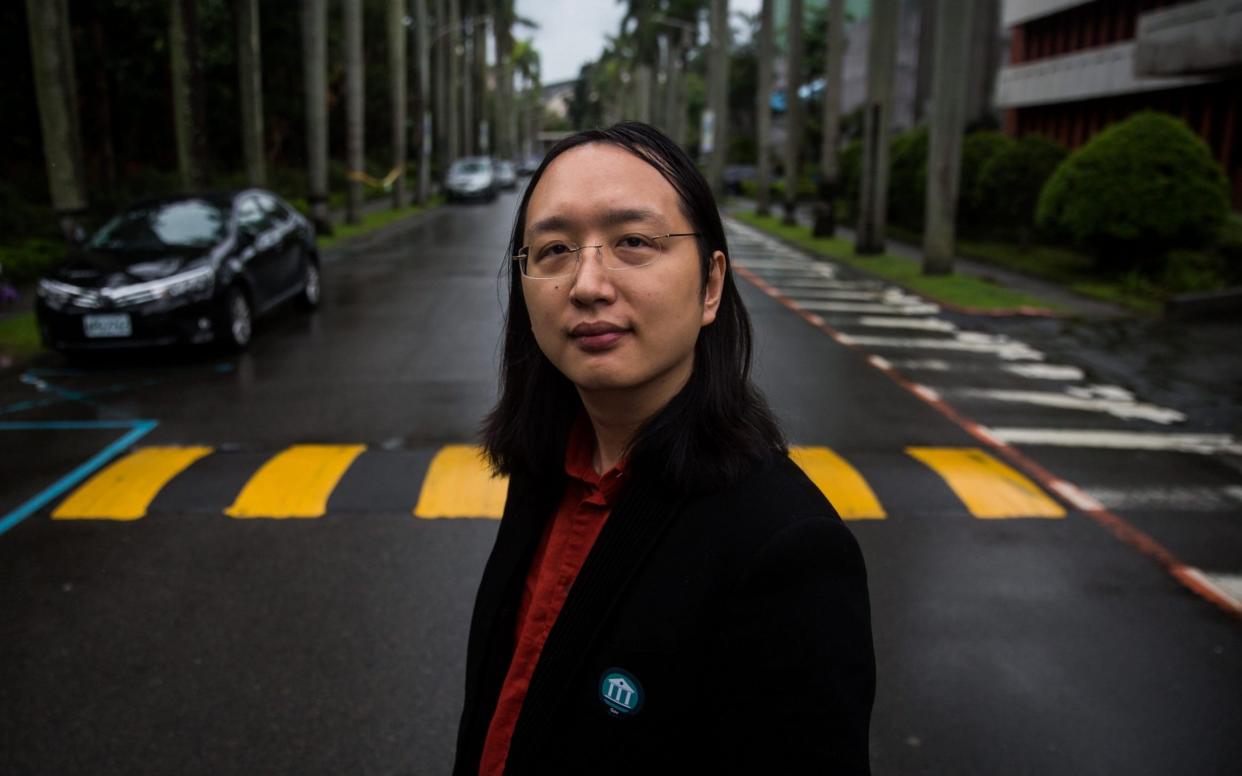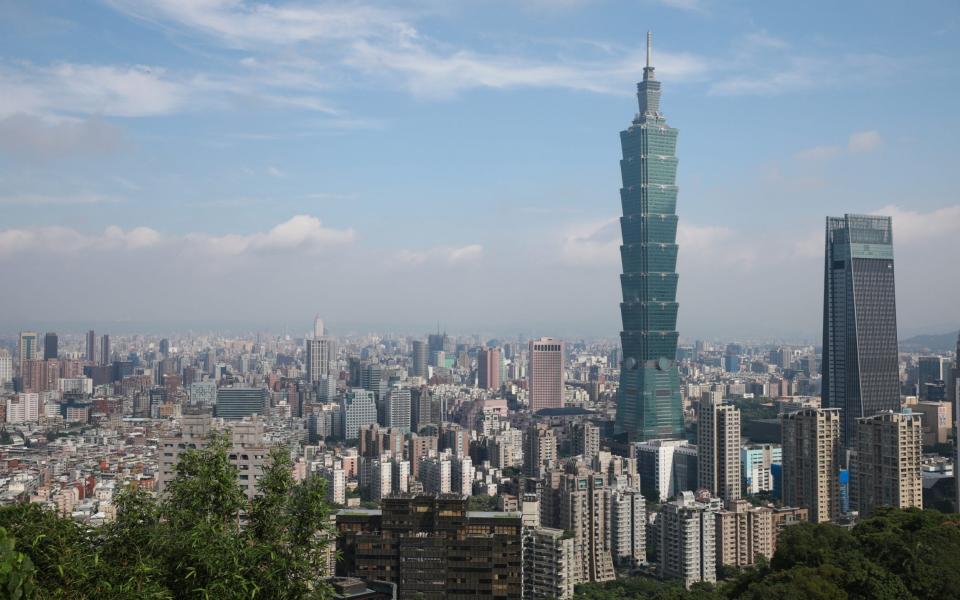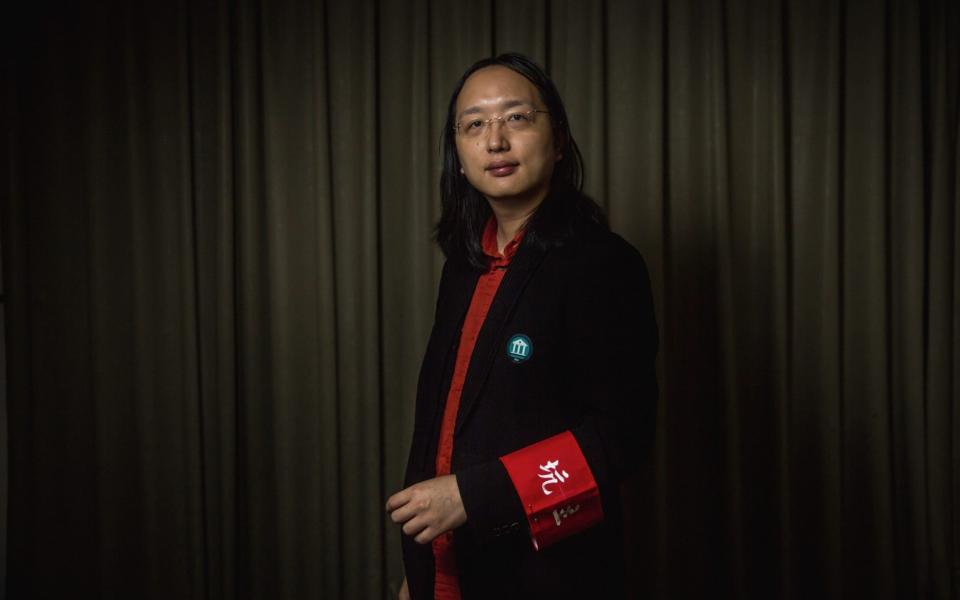Taiwan builds 'nerd immunity' to resist Chinese disinformation campaigns

In the battle to counter the modern-day scourge of weaponised online disinformation, Taiwan has locked on to a winning strategy – “nerd immunity”.
Building public awareness and “inoculating” the 23-million-strong population to fake news from China has been one of the chief goals of Audrey Tang, Taiwan’s ground-breaking digital minister.
Sitting just 80 miles from China, Taiwan has been on the frontlines not only of the coronavirus pandemic but an “infodemic” of online disinformation. But the bombardment of Chinese state-sponsored influence has also made it a world leader in identifying and tackling disinformation.
“When the majority of the population have this exposure and this inoculation, this builds nerd immunity,” Ms Tang, one of the world’s top open source software developers, told the Sunday Telegraph in an interview last week.
“It’s the Taiwan model. Just like we fight the coronavirus with no lockdown, we fight the infodemic with no takedown,” said the former hacker who, in 2016, made history as Taiwan’s youngest ever, and first transgender, minister at 35.

In her first term as an expert adviser to President Tsai Ing-wen, Ms Tang, who has a reported IQ of 180, was a driving force in strengthening the national counter-disinformation strategy and a strong advocate of a new school curriculum to teach children how to identify and combat false claims online.
She has been praised during the pandemic for her use of artificial intelligence in disease prevention, working with software engineers to create a real-time map of local face mask supplies and an alert system that pinpointed risky locations visited by possibly Covid-19 infected cruise passengers.
In February, the worlds of coronavirus and disinformation collided when false claims circulated that the material used to make face masks was the same found in toilet paper, sparking a round of panic buying.
The government acted swiftly to contain the claims by circulating a humourous meme of Taiwan’s premier shaking his bottom, alongside an explanation of the different source materials for toilet paper and masks.
“Our premier wiggling his buttocks a little bit ... says that the rumour that medical masks ramping up will hurt the tissue paper production is not true,” said a laughing Ms Tang.
“People, once they laugh about it, cannot get outraged when they see this conspiracy theory,” she said. “This serves as a memetic vaccine, while this will have an R value of under one, in which case it will stop the spread. Indeed, the panic-buying stopped within a couple of days.”
The incident was a classic example of a counter-disinformation strategy described by Ms Tang as fighting “rumour with humour.”

In this case, the alleged perpetrators of the initial false claims were tissue paper sellers, who now face prosecution.
But Chinese state-sponsored online influence operations present a much bigger challenge to Taiwan’s young democracy.
On Friday, Twitter said it had deleted tens of thousands of accounts used in a “manipulative” influence campaign linked to the Chinese Communist Party (CCP).
The network of accounts was given to the Australian Strategic Policy Institute (ASPI) to analyse. It concluded that the propaganda was largely focused on undermining Hong Kong’s pro-democracy protests and, to a lesser extent, to influence perceptions over the pandemic and China’s territorial claims on Taiwan.
The European Commission this weeks warned against China’s efforts to spread disinformation related to coronavirus, the first time the EU executive has publicly called out China for its role in spreading fake news.
The Commission said China had helped spread false advice such as ‘drinking bleach or pure alcohol can cure the coronavirus’ or conspiracy theories, like the claim that coronavirus is ‘an infection caused by the world’s elites for reducing population growth’.
Chinese diplomats, state media and officials, meanwhile, have encouraged the idea the US military might have originally brought the virus to Wuhan, China, the centre of the outbreak.
Taiwan, which functions like any other nation but which Beijing seeks to annex, has long been subjected to military intimidation and cyber operations intended to undermine its democratically-elected government.
Taiwan already had multiple organisations dedicated to combatting Chinese state influence operations, said Ms Tang. “They [Beijing] do it overtly. It’s not a covert operation,” she said.
Last year, the Taiwan Fact-Checker Centre, an independent non-profit body linked to the Poynter Institute’s International Fact-Checking Network, alerted the public to a social media post falsely claiming Hong Kong “thugs” were being offered money to kill the police.
The centre traced the post, which showed a doctored caption next to a Reuters picture of two teenage protesters, to a Weibo account run by the CCP’s central political and law unit, said Ms Tang.
Incidences of Chinese state disinformation had always been “high” but during the time of the pandemic it had a new “narrative” to push, she warned.
Twitter, along with YouTube, Google and Facebook, is banned in China, which restricts information for its own citizens through its “Great Firewall”.
However, since the start of the year there has been an uptick in Chinese diplomats and state media flocking to social media platforms to push the CCP’s agenda, in what been coined “wolf warrior” diplomacy. Beijing has countered that China itself is a victim of an online smear campaign.
Every member of society had a contribution to make to countering disinformation, said Ms Tang.
Although Taiwan has hundreds of full-time fact-checking experts, “what’s more important is the millions of people who volunteer maybe a couple minutes of their time to flag something they think as suspicious,” she said.
“If you shut down the Internet, of course there’s no disinformation on social media, but what we’re trying to say is that Taiwan strengthened liberal democracy during the pandemic and during the infodemic. We would like to share that with liberal democracies.”

